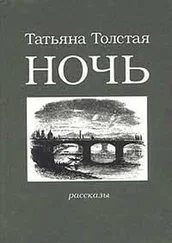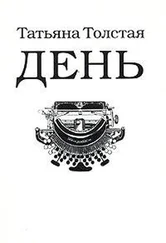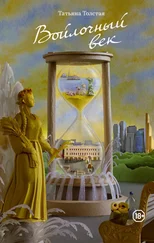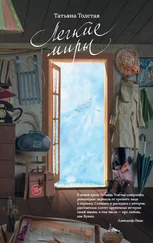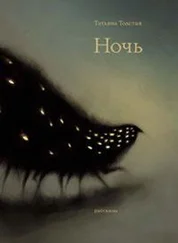I’d define Boldness as a pointless rush of testosterone with no regard for the consequences. Among other peoples it might be age related, occurring mostly during puberty. But it can manifest in a Russian person well into his golden years, and in no way correlating with the calendar. For instance, getting drunk and disorderly. My Finnish editor tells me that his people, too, like falling into a drunken stupor, but only on Fridays and Saturdays and never on Sundays, Monday being a workday.
Just tell me, what Russian would be deterred in such purpose by considerations of work? “Fuck work!” they’re likely to opine.
An exemplary instance of Boldness is Leskov’s short story “Chertogon.” And models of longanimity are to be found in Dostoevsky’s humiliated, insulted, and otherwise tortured characters, both men and women.
But, of course, the defining feature of the Russian people is “Let’s hope.”
This “Let’s hope” is a built-in denial of causality, it’s a lack of belief in the material nature of our universe and its physical laws. Remember this and carve it in stone.
“We should attach this part with screws, otherwise it might fall off along the way.”
“Ah, let’s hope it doesn’t.”
But why? Why wouldn’t it fall off? Vibration, gravity, mathematical probability—all these say it will! And it always does! Always! But again and again, a Russian refuses to screw in, to attach, to prop, to fasten with rope, to hammer, to cover, to secure under lock and key. So once again the thing unscrews, comes loose, falls off, comes untied, crumbles, gets wet, gets stolen; but this does not prevent the same Russian, against all odds and with stunning stubbornness, from denying the obvious next time, too.
It must not be so obvious to him. He must be seeing something else. He must be transcending the laws of physics, mathematical probability, and other trifles, instantly focusing his inner eye upon the depths of the Absolute, the inexplicable Maelstrom, the preincarnate fifteen-dimensional vortex where the Creator, swirling inside Himself, refracting a multispectral light of His own glory, does as He pleases—juggling black holes, for instance, or on a whim bending space-time and changing laws that He Himself established.
And therefore a Russian lives every minute, every second, in expectation of a miracle. And so he doesn’t expect a code of conduct, he expects Grace, for that’s what Grace is—a manifestation of goodness and benevolence perpendicular to all probability and merit. Just because, by virtue of the Lord’s wanting it so. You, human, are a foul and drunken swine; I, in My inexpressible mercy, will shower you with the earthly comforts you desire—forget-me-nots, loose women, dough, booze, and chicken potpie—all out of turn. For that is My whim.
That’s what makes a Russian Russian. That’s his faith. Upon such do the Russian World and the Russian Way rest, as brilliantly presaged by the Russian Count Uvarov, though they did accuse him of stealing government firewood—but then again, who in Russia hasn’t been accused of privatizing strategically important fuel?
Whither, then, are you speeding, O Rus of mine? Whither? Answer me! But no answer comes—only the marvelous sound of your sleigh bells. The air, torn to pieces, thunders and turns into wind; everything that there is on this earth whooshes past, and casting a sideways glance and stepping aside, other peoples and empires do yield to you.
—N. Gogol
What were some noteworthy events of 1757? Hard to say right off the bat. Let me think…. Okay, William Blake—a poet, a mystic, and an artist—was born. On the other hand, Blo-bzang-bstan-pa’i-srgon-me, His Holiness the 2nd Jebtsundamba Khutughtu, died. Sultan Mustafa III ascended the Ottoman throne. China closed its ports to foreigners. Life flowed as usual—magnificently and mysteriously. Meanwhile, in 1757, without much fanfare, a world event of monumental importance occurred: the Day of Judgment and the Second Coming, and, therefore, the end of days. This information is certain, straight from the source.
This truth was revealed to Emanuel Swedenborg, assessor-extraordinaire of the Swedish board of mines, a most respected professor and master of many sciences—from mineralogy and mathematics to chemistry and horticulture. He had real anatomical knowledge, too, as well as being an excellent carpenter. As Karl XII’s advisor, he devised a way to transport small ships overland. He even sketched plans for a flying machine: a wide basket with oars—a few more adjustments and you could have sat down and rowed your way into the blue yonder. By the age of fifty-six, Swedenborg had learned several languages, including ancient Hebrew; he had become a fantastic organist and had written twenty-five scientific and philosophical volumes. He was toiling away on an extended opus entitled The Animal Kingdom —its aim was to explain, over seventeen volumes, the existence of the soul from an anatomical perspective—when, suddenly, strange things started happening to him. He began to be tormented by vivid and meaningful dreams.
Restless yellow horses, moaning women throwing themselves into the arms of men, marching soldiers; unknown forces—either spirits or God himself—that would cast him to the ground and thunder in his ears, enveloping him or seizing his arms. Crucially, he knew—yes, he absolutely knew—what all this represented. The meaning of Creation was opening up to him, both the visible and the invisible, the spiritual. The hereafter presented itself to him in his agony, convulsions, and hallucinations; a number of times, the professor could distinctly feel a dagger piercing his leg or his back. Voices dictated various passages, guiding his hand as he wrote; oftentimes he caught strong and unpleasant smells—obviously the stench of his sins. At night he was frequently tormented by evil spirits: they caused him physical pain, strangling him as they blasphemed; sometimes they’d even switch the flavors in his food—sweet for salty, say. This lasted for six months, and then something even odder happened.
It was April of 1745, London. At an inn, where he had a private room, he was eating ravenously after there’d been a delay in getting him his supper. Suddenly a dimness spread over the room; he saw the floor covered with toads, snakes, and other creepy-crawlies. When the darkness lifted, a man appeared, resplendent in imperial purple. “Don’t eat so much!” he bellowed menacingly before he disappeared and the room returned to normal. The professor got scared and rushed home. That very night, in his dreams, the stranger appeared to him again. He revealed himself to be God, the Creator and the Redeemer. He had chosen Swedenborg to explain to men the interior sense of the Sacred Scripture; He would dictate to him exactly what to write. “And that same night,” Swedenborg writes, “the eyes of my interior man were opened, and perfectly fitted to see into heaven, the world of spirits, and hell…. From that day I renounced all worldly pursuits, in order to devote myself exclusively to spiritual things, as I had been commanded.”
Swedenborg began to write with inhuman speed (in Latin, with a quill) and to publish anonymously books about how the afterworld actually works. Twenty-five volumes followed, describing this new doctrine in exceedingly exhaustive and boring detail. The gist of it was that people had erred in interpreting the Word. They didn’t understand that the Word had become the world, the Word was the entire world, and everything we see around us—the sun, the moon, the stars, the clouds, the horses, the donkeys, the gold, the silver, the women—everything down to the tiniest detail of existence, every little thing, is an allegory, or, as Swedenborg called it, a “correspondence.” Thus, man misunderstood the words of the Apocalypse, which says that after the Day of Judgment the entire observable world will collapse, that new heavens and a new earth will emerge. How can that be? Can it really mean that our sky and the stars in it will vanish? rational Swedes and other skeptical Europeans would ask themselves. No, of course not, Swedenborg would reply, the skies and stars won’t disappear, for if you truly comprehend the spiritual meaning of the Word, then you’ll see that the Sun corresponds to the Lord in terms of love, and the moon in terms of faith; the stars correspond to knowledge of blessings and truth; the clouds represent the literal meaning of God’s Word, and glory represents its inner meaning. “The sign of the Son of man in the heavens” is the appearance of divine truth; “all the tribes of the earth that will mourn”—that’s everything that relates to truth and grace, or to faith and love; “God’s appearance in the heavens with power and glory”—His revelation and presence in the Word; etc., etc. (It all makes sense now, doesn’t it?)
Читать дальше


